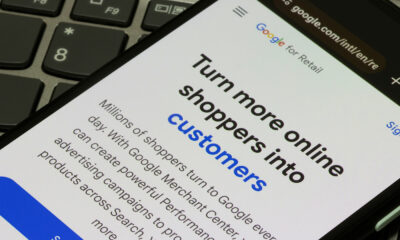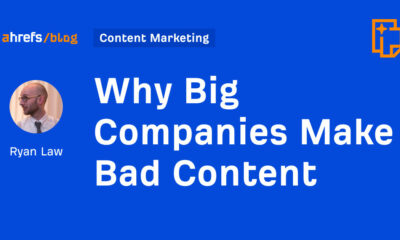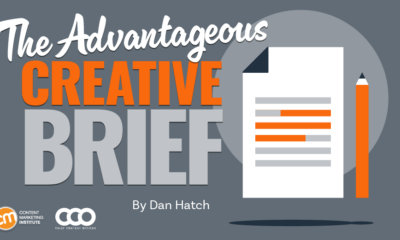SOCIAL
Palestinians raise alarm over Facebook content ‘suppression’

Palestinian activists and journalists protest against what they consider censorship of Palestinian content by Facebook – Copyright AFP HAZEM BADER
Hiba Aslan
Palestinian journalists have raised the alarm over what they describe as unjust suppression of their content on Facebook, a claim backed by rights groups but rejected by the social media giant.
On December 4, Palestine TV correspondent Christine Rinawi posted a video on her Facebook account in which Israeli security forces were seen shooting a Palestinian on the ground, killing him. He had just carried out a knife attack on an Israeli civilian.
Shortly after she posted her video, Rinawi, who has nearly 400,000 followers, noticed it had been removed from her account.
According to monitoring centre Sada Social, 600 Palestinian accounts or pro-Palestinian Facebook posts were restricted or deleted in 2021. — © AFP
This was not her first experience with Facebook’s enforcement, and Rinawi said her account had already been restricted after she shared footage of a November attack in Jerusalem.
In both cases, Facebook said it intervened because the posts violated the platform’s standards.
A spokesperson for Facebook’s parent company Meta said its policies “were designed to give everyone a voice while keeping them safe on our apps”.
“We apply these policies to everyone equally, regardless of who is posting.”
Allegations of pro-Israeli bias at Facebook have simmered for years and were renewed in October when Human Rights Watch, a vocal Israel critic, said the platform had “suppressed content posted by Palestinians and their supporters speaking out about human rights issues in Israel and Palestine”.
Palestinian reporters have cited multiple incidents they describe as censorship.
One popular online news outlet, Maydan Quds News, may even have to fire reporters after its main Facebook page with 1.2 million followers was deleted, a source who requested anonymity told AFP.
The Meta spokesperson told AFP it has “a dedicated team, which includes Arabic and Hebrew speakers, who are focused on keeping our community safe by making sure we’re removing harmful content”.
I

Palestinian activists and journalists protest against what they consider censorship of Palestinian content by Facebook. — © AFP HAZEM BADER
t also strives to address “any enforcement errors as quickly as possible so people can keep sharing what matters to them”.
In the midst of a bout of fighting in May between Israel and armed factions in the Gaza Strip — the worst in years — Facebook had acknowledged widescale deletion of Palestinian posts, ascribing it to a technical bug that it sought to fix.
– ‘Silencing the voice’ –
According to Palestinian social media monitoring centre Sada Social, 600 Palestinian accounts or pro-Palestinian Facebook posts were restricted or deleted in 2021, a record. The centre helped launch a social media campaign called “Facebook Censors Jerusalem”.
Rama Youssef, a Jerusalem-based journalist who volunteered for the campaign, said Facebook hews to an Israeli point of view and has “double standards”.
The Arab Center Washington DC think-tank said the Israeli government also pushes to censor “tens of thousands of posts and accounts” that support a Palestinian point of view.
Meta did not answer AFP questions about requests from the Israeli government.
But the company denied accusations of bias, saying its community standards prohibit violence, terrorism, hate and large-scale criminal activity, as well as posts supporting those subjects.
Israeli officials have also accused various social media platforms, including Facebook, of failing to curb anti-Semitism.
In February, then-diaspora affairs minister Omer Yankelevich presented Facebook, Google, TikTok and Twitter with proposals to beef up the fight against anti-Semitism, saying it was “running rampant” online.
– Call for more transparency –
Media expert Iyad al-Rifai of Sada Social said he regularly meets with Facebook representatives to ask for more transparency.
He said the site appeared to target the word “shahid”, Arabic for martyr, which Palestinians frequently use to describe people killed by Israeli forces, including those who carried out attacks.
Rifai told AFP that Facebook insisted it is bound by American standards which consider “attackers to be terrorists”, not martyrs to a political cause.
But he said censoring the term wholesale ignored the wider context of the Israeli-Palestinian conflict.
Meta did not respond to a question about its policies regarding the use of the word “shahid”.
But it said it reviews posts according to its own policies, as well as “local laws and international human rights standards”.
Rifai said he was concerned that deleting accounts might discourage Palestinians from “engaging with pivotal issues” for fear of losing “their digital history and presence”.
He said he obtained from Facebook “promises to improve the working mechanisms of the algorithms so as to differentiate between journalistic content and ordinary content”, but he feared they offered “temporary rather than radical solutions”.
Source link
SOCIAL
Snapchat Explores New Messaging Retention Feature: A Game-Changer or Risky Move?

In a recent announcement, Snapchat revealed a groundbreaking update that challenges its traditional design ethos. The platform is experimenting with an option that allows users to defy the 24-hour auto-delete rule, a feature synonymous with Snapchat’s ephemeral messaging model.
The proposed change aims to introduce a “Never delete” option in messaging retention settings, aligning Snapchat more closely with conventional messaging apps. While this move may blur Snapchat’s distinctive selling point, Snap appears convinced of its necessity.
According to Snap, the decision stems from user feedback and a commitment to innovation based on user needs. The company aims to provide greater flexibility and control over conversations, catering to the preferences of its community.
Currently undergoing trials in select markets, the new feature empowers users to adjust retention settings on a conversation-by-conversation basis. Flexibility remains paramount, with participants able to modify settings within chats and receive in-chat notifications to ensure transparency.
Snapchat underscores that the default auto-delete feature will persist, reinforcing its design philosophy centered on ephemerality. However, with the app gaining traction as a primary messaging platform, the option offers users a means to preserve longer chat histories.
The update marks a pivotal moment for Snapchat, renowned for its disappearing message premise, especially popular among younger demographics. Retaining this focus has been pivotal to Snapchat’s identity, but the shift suggests a broader strategy aimed at diversifying its user base.
This strategy may appeal particularly to older demographics, potentially extending Snapchat’s relevance as users age. By emulating features of conventional messaging platforms, Snapchat seeks to enhance its appeal and broaden its reach.
Yet, the introduction of message retention poses questions about Snapchat’s uniqueness. While addressing user demands, the risk of diluting Snapchat’s distinctiveness looms large.
As Snapchat ventures into uncharted territory, the outcome of this experiment remains uncertain. Will message retention propel Snapchat to new heights, or will it compromise the platform’s uniqueness?
Only time will tell.
SOCIAL
Catering to specific audience boosts your business, says accountant turned coach

While it is tempting to try to appeal to a broad audience, the founder of alcohol-free coaching service Just the Tonic, Sandra Parker, believes the best thing you can do for your business is focus on your niche. Here’s how she did just that.
When running a business, reaching out to as many clients as possible can be tempting. But it also risks making your marketing “too generic,” warns Sandra Parker, the founder of Just The Tonic Coaching.
“From the very start of my business, I knew exactly who I could help and who I couldn’t,” Parker told My Biggest Lessons.
Parker struggled with alcohol dependence as a young professional. Today, her business targets high-achieving individuals who face challenges similar to those she had early in her career.
“I understand their frustrations, I understand their fears, and I understand their coping mechanisms and the stories they’re telling themselves,” Parker said. “Because of that, I’m able to market very effectively, to speak in a language that they understand, and am able to reach them.”Â
“I believe that it’s really important that you know exactly who your customer or your client is, and you target them, and you resist the temptation to make your marketing too generic to try and reach everyone,” she explained.
“If you speak specifically to your target clients, you will reach them, and I believe that’s the way that you’re going to be more successful.
Watch the video for more of Sandra Parker’s biggest lessons.
SOCIAL
Instagram Tests Live-Stream Games to Enhance Engagement

Instagram’s testing out some new options to help spice up your live-streams in the app, with some live broadcasters now able to select a game that they can play with viewers in-stream.
As you can see in these example screens, posted by Ahmed Ghanem, some creators now have the option to play either “This or That”, a question and answer prompt that you can share with your viewers, or “Trivia”, to generate more engagement within your IG live-streams.
That could be a simple way to spark more conversation and interaction, which could then lead into further engagement opportunities from your live audience.
Meta’s been exploring more ways to make live-streaming a bigger consideration for IG creators, with a view to live-streams potentially catching on with more users.
That includes the gradual expansion of its “Stars” live-stream donation program, giving more creators in more regions a means to accept donations from live-stream viewers, while back in December, Instagram also added some new options to make it easier to go live using third-party tools via desktop PCs.
Live streaming has been a major shift in China, where shopping live-streams, in particular, have led to massive opportunities for streaming platforms. They haven’t caught on in the same way in Western regions, but as TikTok and YouTube look to push live-stream adoption, there is still a chance that they will become a much bigger element in future.
Which is why IG is also trying to stay in touch, and add more ways for its creators to engage via streams. Live-stream games is another element within this, which could make this a better community-building, and potentially sales-driving option.
We’ve asked Instagram for more information on this test, and we’ll update this post if/when we hear back.
-

 MARKETING6 days ago
MARKETING6 days agoHow Tagging Strategies Transform Marketing Campaigns
-
SEARCHENGINES6 days ago
Daily Search Forum Recap: May 3, 2024
-

 MARKETING7 days ago
MARKETING7 days agoTinuiti Recognized in Forrester Report for Media Management Excellence
-

 SEO7 days ago
SEO7 days agoGoogle Performance Max For Marketplaces: Advertise Without A Website
-

 SEARCHENGINES5 days ago
SEARCHENGINES5 days agoThe Industry Mourns The Loss Of Mark Irvine
-

 MARKETING4 days ago
MARKETING4 days agoA Recap of Everything Marketers & Advertisers Need to Know
-

 MARKETING5 days ago
MARKETING5 days agoThe key to correcting the C-suite trust deficit
-

 SEO6 days ago
SEO6 days agoWhat Is Social Listening And How To Get Started
















You must be logged in to post a comment Login